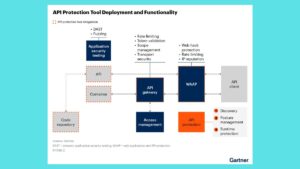The Future of Compensation Management: Balancing Fairness, Flexibility, and Innovation

Compensation management is a critical component of talent management, directly influencing employee satisfaction, retention, and overall organizational success. As the workforce evolves and employee expectations shift, companies must rethink their compensation strategies to remain competitive and attract top talent. The future of compensation management will be driven by the need for transparency, flexibility, and alignment with broader business goals.
In this blog, we explore the emerging trends, challenges, and strategies shaping the future of compensation management, providing insights into how organizations can stay ahead in this ever-changing landscape.
1. The Shift Toward Pay Transparency
One of the most significant trends in compensation management is the growing demand for pay transparency. Employees increasingly want to understand how their compensation is determined and how it compares to their peers. This demand for transparency is driven by a desire for fairness and trust in the workplace.
Key Impacts of Pay Transparency:
- Increased Trust and Employee Engagement: When employees have visibility into how compensation decisions are made, they are more likely to feel valued and trust that they are being paid fairly. This leads to higher engagement and job satisfaction.
- Reduction of Pay Gaps: Transparent compensation practices help identify and address pay disparities, such as gender and racial wage gaps. By openly sharing pay ranges and criteria, companies can work toward more equitable compensation.
- Attraction and Retention of Top Talent: Pay transparency has become a key factor in attracting talent, especially among younger generations. Companies that are open about their compensation practices will have a competitive edge in recruiting top talent.
Future Outlook:
As transparency becomes a priority for employees, organizations will need to adopt more open and equitable compensation practices. Companies that embrace pay transparency will benefit from increased employee trust, engagement, and a stronger employer brand.
2. The Role of Data and Analytics in Compensation Management
Data-driven decision-making is becoming increasingly important in compensation management. Companies are leveraging data and analytics to create compensation strategies that are fair, competitive, and aligned with market trends. By analyzing internal and external data, organizations can make more informed decisions about salary ranges, bonus structures, and total rewards.
Key Impacts of Data-Driven Compensation:
- Market Competitiveness: Compensation data analytics allows companies to benchmark salaries against industry standards, ensuring that they remain competitive in their respective markets. This helps attract and retain top talent by offering compensation packages that meet or exceed market rates.
- Fairness and Equity: Data analytics can identify discrepancies in pay across different demographics, helping companies address unconscious biases and ensure pay equity. This is essential for building a more inclusive workplace.
- Tailored Compensation Packages: By analyzing employee performance and market data, companies can create personalized compensation packages that align with individual employees’ contributions, skills, and career growth.
Future Outlook:
Data and analytics will continue to play a central role in compensation management. Companies that leverage data to make informed, equitable, and competitive compensation decisions will gain a significant advantage in the talent market.
3. Flexible Compensation and Total Rewards
The modern workforce values flexibility not just in how they work but also in how they are compensated. Total rewards, which include salary, benefits, bonuses, and non-monetary perks, are becoming increasingly customizable. Employees are seeking compensation packages that reflect their personal needs, whether that’s work-life balance, wellness programs, or retirement planning.
Key Impacts of Flexible Compensation:
- Personalized Benefits: Employees want compensation packages tailored to their individual circumstances. For example, a younger employee may prioritize student loan assistance, while someone nearing retirement may focus on 401(k) matching. Offering flexible benefits allows employees to choose what matters most to them.
- Work-Life Balance Incentives: Non-monetary rewards like extra vacation days, remote work options, or wellness programs are becoming more valuable to employees. These perks not only support employee well-being but also contribute to a positive work culture.
- Increased Employee Satisfaction: Providing flexible compensation options shows that the company values its employees’ diverse needs, leading to higher satisfaction and loyalty.
Future Outlook:
Flexibility in compensation will become a key differentiator for companies looking to attract and retain top talent. Organizations that offer customizable total rewards packages will better meet the diverse needs of their workforce, leading to increased engagement and loyalty.
4. Performance-Based Compensation
Performance-based compensation, which links employee pay to their contributions and results, is becoming more prevalent as companies seek to reward high performers. This approach aligns compensation with business outcomes, incentivizing employees to exceed expectations and drive company success.
Key Impacts of Performance-Based Pay:
- Increased Motivation: Tying compensation to performance motivates employees to strive for excellence and achieve key business goals. This is particularly effective when combined with clear metrics and regular feedback.
- Attracting High Performers: High-performing individuals are often drawn to organizations that reward results. Performance-based pay structures attract top talent by offering significant earning potential for those who excel.
- Alignment with Business Goals: By linking compensation to performance, companies ensure that employees’ efforts are directly tied to business outcomes. This fosters a results-oriented culture and drives overall organizational success.
Future Outlook:
Performance-based compensation will continue to be a powerful tool for companies that want to attract, motivate, and retain top talent. Organizations that implement clear, measurable performance metrics and tie compensation to those metrics will create a culture of accountability and success.
5. Equity-Based Compensation: Stock Options and Ownership
Equity-based compensation, such as stock options or employee ownership programs, is increasingly popular in industries like technology and startups. This form of compensation allows employees to share in the company’s success and aligns their interests with long-term business growth.
Key Impacts of Equity-Based Compensation:
- Long-Term Retention: Offering stock options or ownership stakes gives employees a vested interest in the company’s success, incentivizing them to stay with the organization long-term to realize the value of their equity.
- Attracting Entrepreneurial Talent: Equity-based compensation is particularly attractive to entrepreneurial-minded employees who want to be part of a company’s growth story. This can help attract top talent to startups and high-growth companies.
- Alignment with Business Growth: By giving employees a stake in the company’s future, equity-based compensation aligns their efforts with long-term business growth, fostering a sense of ownership and commitment.
Future Outlook:
Equity-based compensation will continue to be a valuable tool for companies looking to attract and retain entrepreneurial talent. As employees seek greater involvement in their organizations’ success, equity-based programs will grow in importance across industries.
6. Compensation Management and Remote Work
The rise of remote work has introduced new challenges and opportunities for compensation management. With employees working from various locations, companies are rethinking how they structure salaries, considering factors like cost of living, location, and the evolving value of remote work perks.
Key Impacts of Remote Work on Compensation:
- Location-Based Pay Models: Some companies are adopting location-based pay models that adjust salaries based on the cost of living in the employee’s location. While this can create challenges in equity and employee satisfaction, it allows companies to offer competitive compensation in different markets.
- Remote Work Benefits: With remote work becoming a permanent option for many employees, companies are offering new perks such as home office stipends, flexible work hours, and wellness resources to support remote employees’ needs.
- Global Talent Access: Remote work allows companies to tap into global talent pools, but it also requires navigating complex compensation challenges related to different legal, tax, and compliance regulations across regions.
Future Outlook:
As remote work continues to evolve, compensation management strategies will need to adapt to accommodate location-based pay structures and the diverse needs of a distributed workforce. Companies that offer competitive and fair compensation, regardless of location, will be well-positioned to attract and retain top talent globally.
Conclusion
The future of compensation management is defined by transparency, flexibility, and alignment with employee needs and business goals. As organizations face the challenges of a rapidly evolving workforce, they must adopt strategies that prioritize fairness, performance-based rewards, and personalized total compensation packages.
By embracing data-driven insights, flexible compensation structures, and a commitment to equity and transparency, companies can not only attract top talent but also foster a culture of engagement, motivation, and long-term success.







